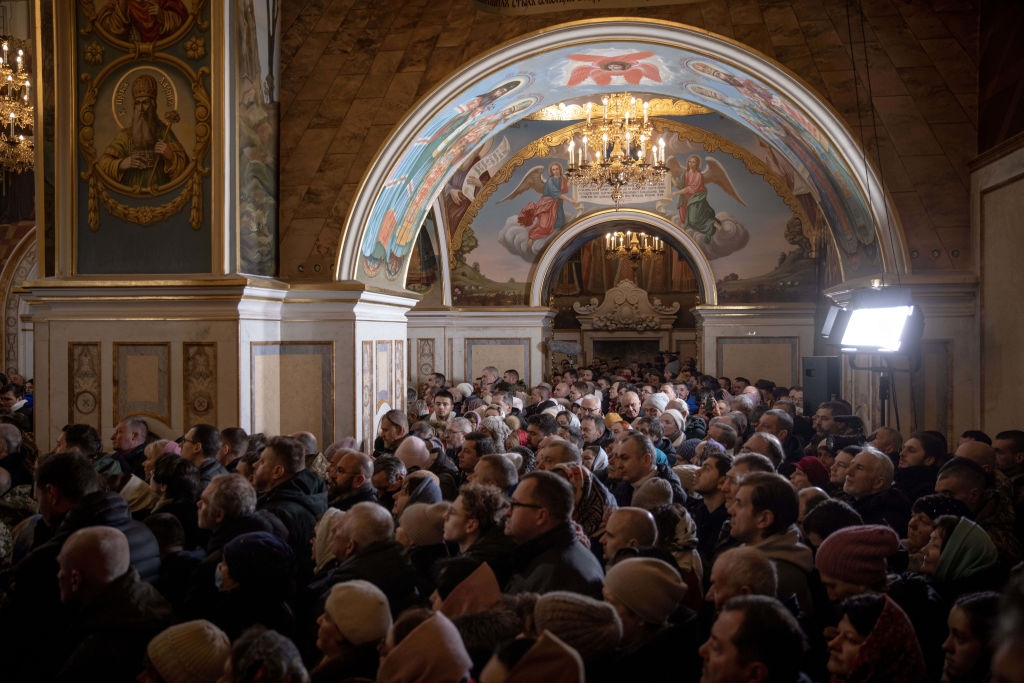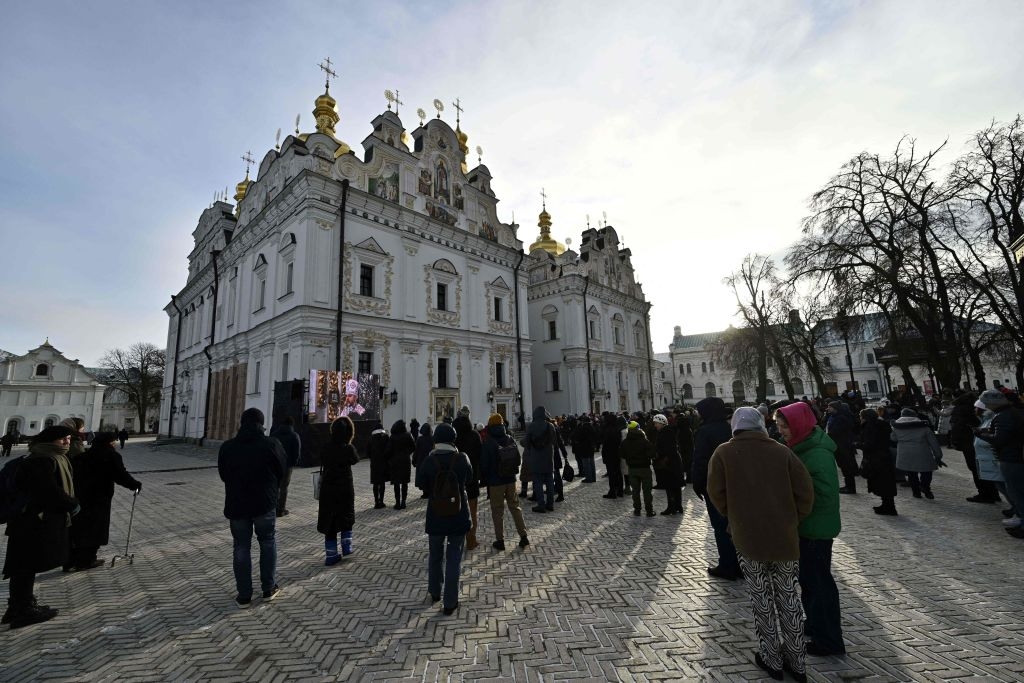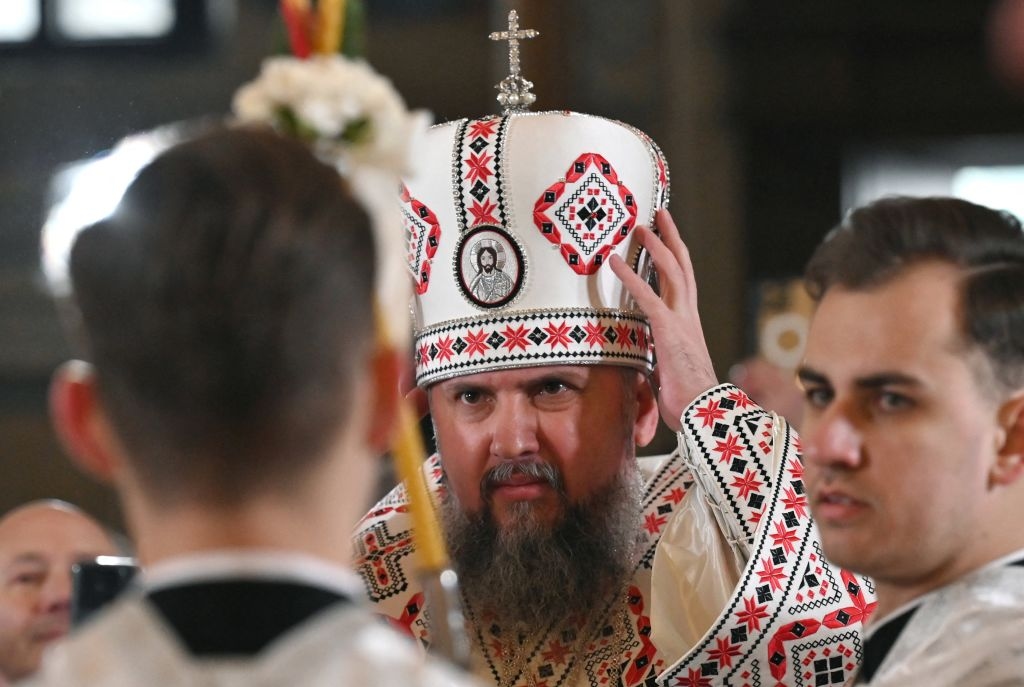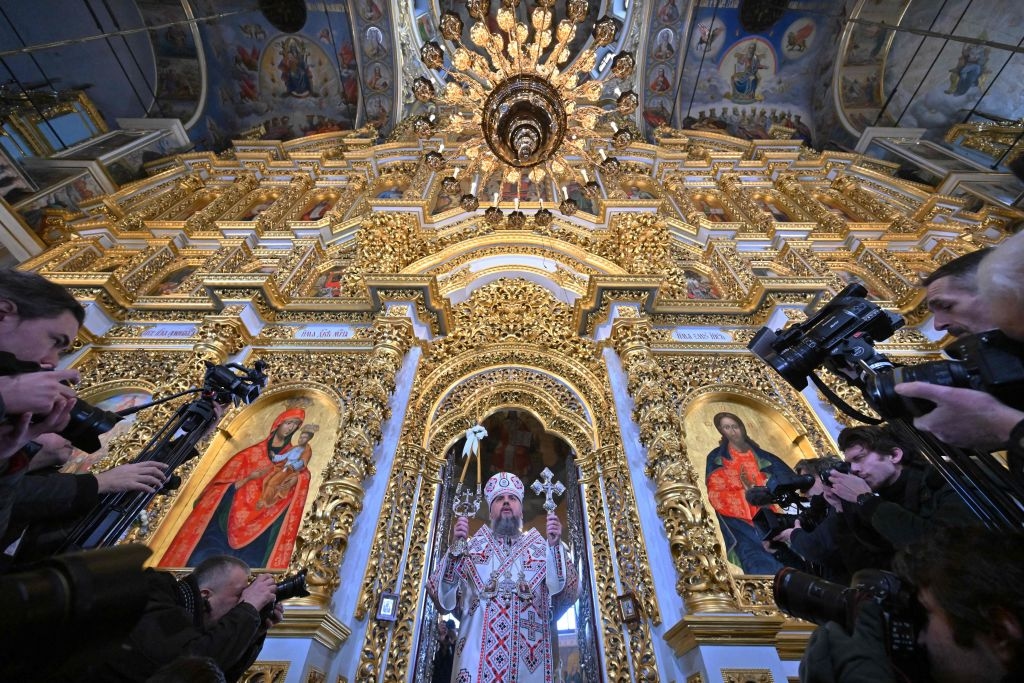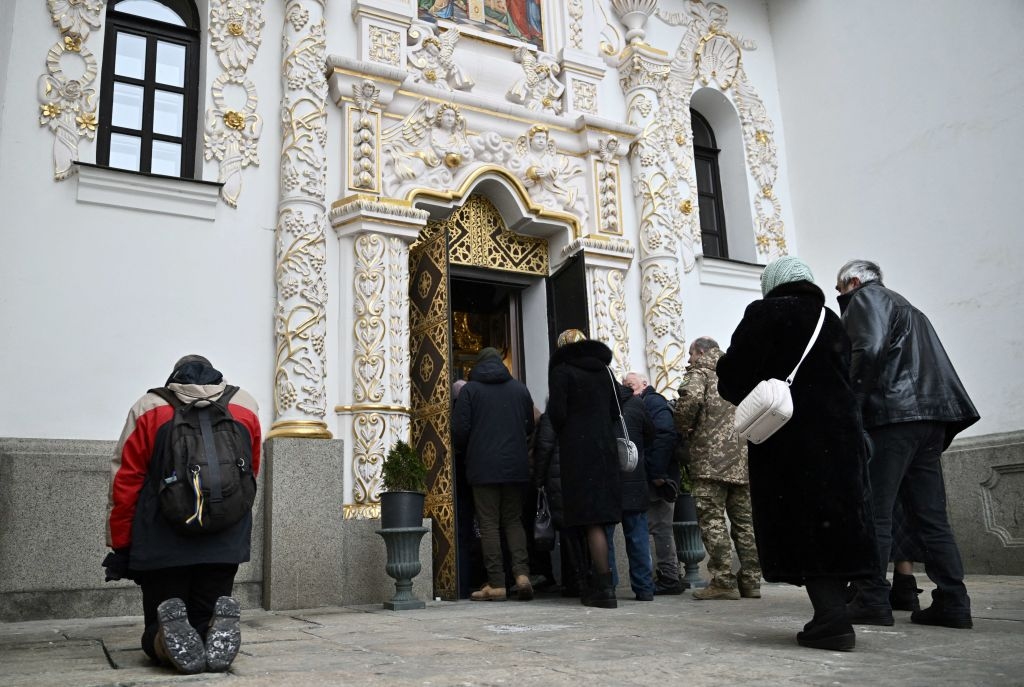Orthodox Church of Ukraine holds church service at Kyiv Pechersk Lavra for the first time.
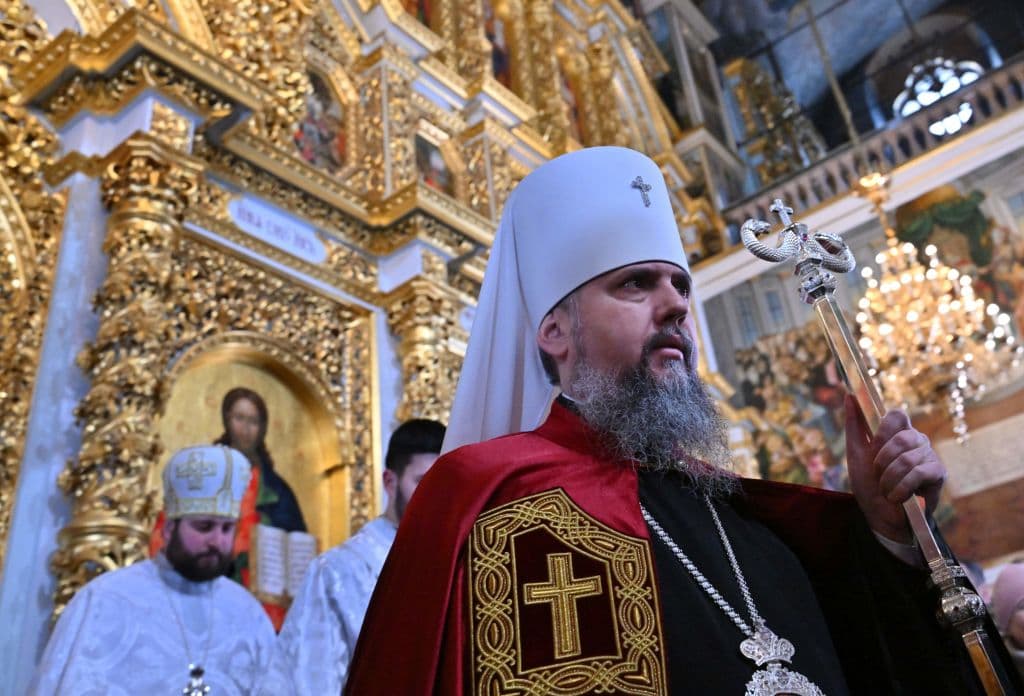
The independent Orthodox Church of Ukraine on Jan. 7 held a Christmas service at the Kyiv Pechersk Lavra, Ukraine's main Orthodox monastery, for the first time.
Previously the entire Lavra was controlled by the Ukrainian Orthodox Church of the Moscow Patriarchate, an affiliate of the Russian Orthodox Church.
"The evil spirit of the Russian world is leaving (the Lavra), and the spirit of true Orthodox Christianity and service to the Ukrainian people is returning," Epiphanius, the metropolitan of Kyiv and head of the Orthodox Church of Ukraine, said at the Christmas service.
"Resistance to the ruinous and heretical ideology of the Russian world, which is the cornerstone of justifications for Russia's aggression against Ukraine, is our common cause. Uniting our efforts, we will be able to protect our people from the Kremlin's hybrid aggression on the spiritual front."
Epiphanius urged Russian-affiliated monks of the Kyiv Pechersk Lavra to break their ties with Moscow and join the Orthodox Church of Ukraine.
The Russian-controlled church's lease on a part of the Kyiv Pechersk Lavra - called the Upper Lavra - expired on Jan. 1, and the Ukrainian government decided not to extend the lease. The Upper Lavra includes the Dormition Cathedral, the monastery's main church, and the Refectory Church.
The Russian-affiliated church is also leasing another part of the monastery, the Lower Lavra, for an indefinite period. However, the Ukrainian authorities are currently checking the legality of its lease on the Lower Lavra as well.
Apart from the Moscow Patriarchate, the premises of the Lavra are also used by a museum.
On Dec. 2, the Ukrainian government registered a legal entity supposed to manage the Kyiv Pechersk Lavra on behalf of the independent Orthodox Church of Ukraine, which is competing with the Russian-backed church.
Currently the legal entity does not control any buildings of the Lavra but its registration triggered speculation that a part or all of the monastery may be transferred to the Orthodox Church of Ukraine.
In early January the Orthodox Church of Ukraine received a special permit from the government to hold a Christmas service at the Lavra's Dormition Cathedral on Jan. 7.
On Dec. 2, President Volodymyr Zelensky also imposed sanctions against Pavlo Lebid, head of the Russian-affiliated church's Kyiv Pechersk Lavra and an ex-lawmaker from the pro-Russian Party of Regions.
Lebid has held consistent pro-Russian views and called for "unity" with Russia. He has also stated that "Crimea has never been Ukrainian."
In November social media users shared a video in which a Moscow Patriarchate priest and parishioners at one of the Lavra's churches were singing a prayer for "Mother Russia." The priest was later suspended by the Moscow-affiliated church.
The Kyiv Pechersk Lavra ("pecherska" means "cave"), founded in 1051, is one of the first monasteries in Kyivan Rus. It belonged to the Ukrainian branch of the Ecumenical Patriarchate of Constantinople until 1688, when it was annexed by the Russian Orthodox Church.
Since 1688, the Lavra has been used for Russian imperial propaganda.
Igor Girkin, an officer of Russia's Federal Security Service, has said he had served as a security guard at the Lavra for several days in January 2014. Girkin later launched Russia's aggression in Ukraine's Donbas by seizing the city of Slovyansk in April 2014.
Control over the Lavra, the Russian-affiliated Ukrainian church's main monastery and the residence of its leader, has been crucial for Moscow.
Previously the Orthodox Church of Ukraine and Ukrainian Greek Catholics had celebrated Christmas only on Jan. 7 - on the same day as Russia and some other Orthodox churches. A majority of Orthodox churches and Roman Catholics celebrate Christmas on Dec. 25.
In 2022, the Orthodox Church of Ukraine allowed its parishes to celebrate Christmas either on Dec. 25 or on Jan. 7 as part of the country's efforts to distance itself from Russia amid its aggression against Ukraine.
In December Metropolitan Epiphanius, head of the Orthodox Church of Ukraine, and Metropolitan Svyatoslav, head of the Ukrainian Greek Catholic Church, agreed to consider revising their religious calendars.

